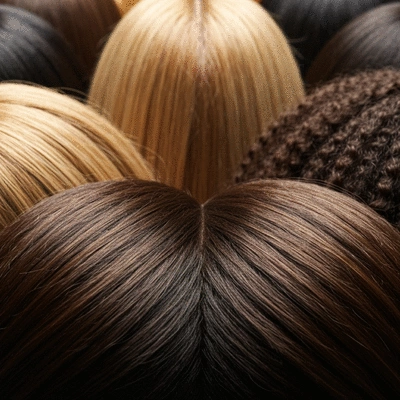Hormones Promoting Hair Growth
- ✓Estrogen: Supports hair growth & thickness.
- ✓Thyroid Hormones: Essential for overall hair growth.
- ✓FSH/LH: Regulate follicle health.
Did you know that hormonal fluctuations can significantly impact your hair growth cycles? Understanding this connection can empower you to take proactive steps toward better hair health.
Understanding the key hormones involved in hair growth and their impact can help in identifying and addressing hair loss concerns. The visual below highlights hormones that promote growth and those that can lead to thinning or loss.
Have you ever wondered how hormonal changes can impact your hair? It’s a common concern, and understanding hormonal imbalances is the first step in addressing hair health. Hormonal fluctuations can be influenced by a variety of factors, including stress, diet, and even lifestyle choices. Let’s explore what these imbalances are and how they affect hair growth!
In essence, hormonal imbalances occur when there is too much or too little of a specific hormone in your body. This imbalance can lead to various health issues, including changes in your hair's growth cycle. By recognizing the signs early, you can take proactive steps to maintain your hair health.
Hormonal imbalances can affect anyone, and they often manifest in subtle ways. They result from disruptions in the endocrine system, which controls hormone production. Common causes include:
Recognizing these triggers is crucial for effective hair loss management. When hormones are out of balance, your body can misinterpret signals that control hair growth, leading to thinning or shedding.
Several hormones play vital roles in the hair growth cycle. Understanding these key players helps in identifying the reasons behind hair loss. Let’s look at some of the most significant hormones:
Understanding these hormones allows you to take a more informed approach to your hair care routine. Have you noticed any patterns or changes in your hair alongside shifts in your mood or stress levels?
Follicle-stimulating hormone (FSH) and luteinizing hormone (LH) play crucial roles in regulating reproductive health and can also influence hair growth. FSH helps stimulate the growth of hair follicles, while LH plays a role in the production of hormones that affect hair health.
When these hormones are out of balance, it can lead to conditions that impact hair health. For instance, in women experiencing menopause, decreased levels of these hormones can contribute to thinning hair. By understanding their function, you can address any potential issues with your healthcare provider effectively.
Have you noticed a correlation between your hormonal changes and hair health? We’d love to hear your experiences! Please take a moment to share your thoughts below:
Understanding your hormones is crucial in the fight against hair loss. Often, hormonal imbalances can lead to various issues, including thinning hair and loss. By recognizing the key players—like androgens, estrogen, and thyroid hormones—you can take significant steps towards improving your hair health. Let’s highlight some important insights that can guide your journey:
As a dermatologist, I've seen firsthand how these factors intertwine to affect hair health. By understanding your unique hormonal balance, you can make informed choices about your hair care regimen.
To truly take control of your hair health, it's essential to understand how your hormones work. Each hormone plays a distinct role, and when they're out of balance, your hair can suffer. For instance, heightened levels of androgens can cause hair thinning, while low estrogen might lead to hair loss in women. Here’s a quick breakdown of hormones to keep an eye on:
By recognizing how each hormone affects your hair, you empower yourself to take proactive steps, whether that's seeking specialized care or adjusting your lifestyle.
After identifying potential hormonal issues, consulting with a specialist, like myself, is vital. It's not just about knowing what hormone is out of balance; it’s about creating a personalized treatment plan that fits your specific needs. Here’s what you might discuss with your doctor:
Taking these steps not only helps in managing your hair loss effectively but also gives you a clearer picture of your overall health. Together, we can tailor a plan that addresses your unique situation!
Taking charge of your hair health means arming yourself with knowledge! At What Causes Hair Loss, we provide a wealth of resources, from articles explaining hormonal impacts to product recommendations backed by dermatological research. Here are some resources you might find helpful:
These resources will help you navigate the complexities of hair loss and make informed decisions about your hair care journey!
Your journey with hair loss may feel isolating, but remember, you’re not alone! I encourage you to share your experiences with others, whether in support groups or online forums. Connecting with those who understand your struggles can provide comfort and insight. Here’s why sharing is important:
Don’t hesitate to seek help! Whether it’s from friends, family, or professionals like myself, reaching out is a strength. Together, we can tackle hair loss and find solutions that work for you!
Here is a quick recap of the important points discussed in the article:
At What Causes Hair Loss, we unravel the complexities of hair loss with science-backed insights, empowering you with dermatologist-reviewed guides and effective solutions for your hair health journey.
Dermatologist-Reviewed Insights


